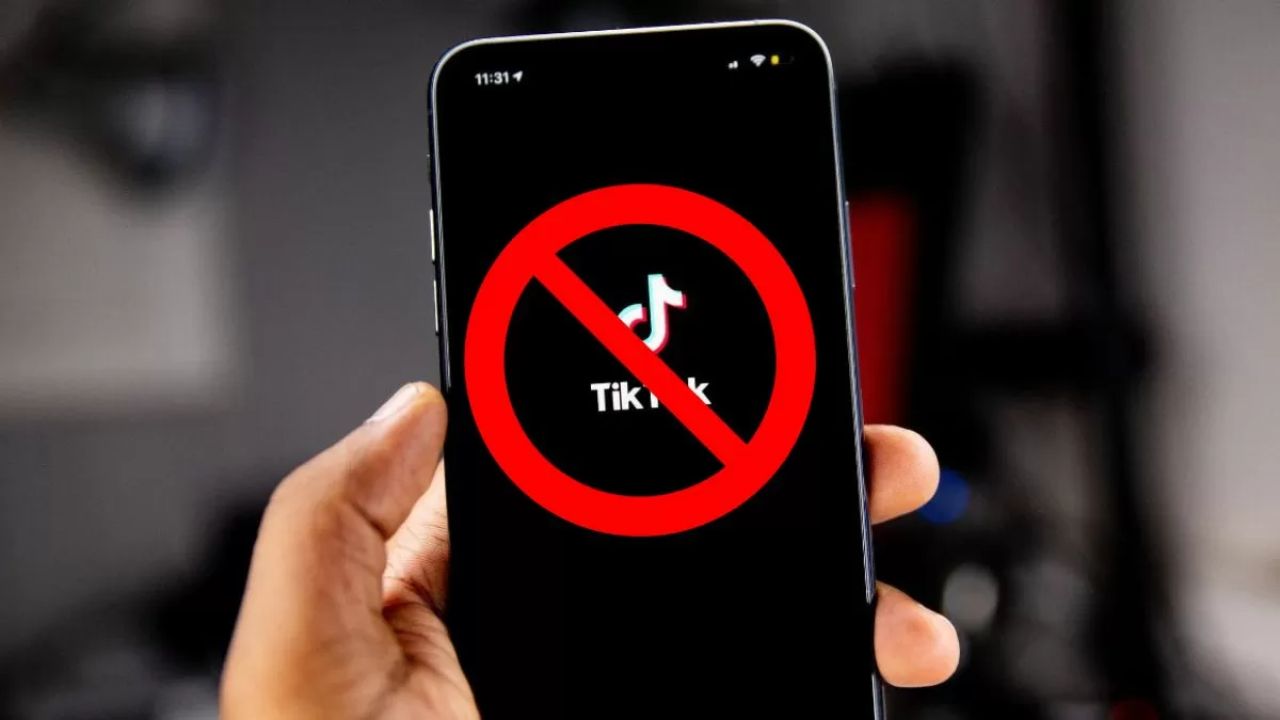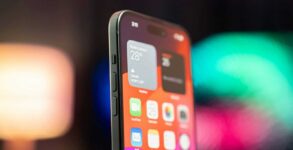Countries that Banned TikTok: Many countries are worried about TikTok’s security and China’s ties. The United States is the latest to call for a ban.
In Australia, TikTok has been banned from federal government devices due to privacy concerns.
United States, Canada, Britain, and New Zealand all took similar steps against TikTok as part of the “Five Eyes” intelligence-sharing partnership.
Downloading the app may expose sensitive information, especially on government devices.
According to TikTok, the bans were imposed without any evidence or deliberation. It disputes accusations that it collects a lot of data.
Bytedance, a Chinese tech company, owns TikTok, but it operates independently and doesn’t share data with the Chinese government, according to the company. It is currently storing US user data in Texas, which will keep it out of reach of China.
Despite China’s support, many nations are wary. As a result of Beijing’s strict privacy law, which stipulates how companies can collect and store data, many Western tech companies, including Airbnb, Yahoo, and LinkedIn, have also been leaving China or downsizing their operations.
Countries that Banned TikTok and the Reasons Behind It
These are the countries and regions that have announced or implemented partial or total bans on the app.
Australia
Over security concerns, Australia banned TikTok from all government-owned devices on April 4.
TikTok poses security and privacy risks due to its extensive collection of user data and its exposure to extrajudicial directions from a foreign government that contradicts Australian law, according to a notice issued by the Attorney General’s Department.
According to the Attorney-General, the ban will come into effect “as soon as practicable” based on the advice of intelligence and security agencies.
Estonia
Kristjan Järvan, Estonia’s outgoing minister of IT and foreign trade, told a local newspaper that TikTok would be banned from state-issued smartphones.
The minister, however, told Eesti Päevaleht: “We won’t look into a public official using their private phone while at work.”.
The UK
Oliver Dowden, the UK Secretary of State in the Cabinet Office, announced an immediate ban on government devices on March 16.
In an address to MPs, the minister said that this is a precautionary measure. Although TikTok is already being used in limited parts of government, it is also good cyber hygiene.
The ban is based on a report by the UK’s National Cyber Security Centre, which found “there may be a risk regarding how sensitive government data is accessed and used”.
While the UK was one of the first countries to ban Huawei’s technology, critics criticized TikTok’s delay in being banned compared to its allies.
EU institutions
The European Parliament, European Commission, and EU Council have all banned TikTok on staff devices due to cybersecurity concerns.
It also strongly recommended that members of parliament and staff remove the app from their personal devices as well.
France
The French government banned the installation and use of “recreational” applications on 2.5 million civil servants’ work phones on March 24.
The “binding” instruction that informed state employees of the ban does not apply to their personal phones.
In addition to Netflix, France is the first country to ban other “recreational” applications on government computers.
It is not appropriate to deploy recreational applications on administration equipment due to the lack of cybersecurity and data protection. As a result, these applications may pose a risk to the data protection of these administrations and public officials, according to the French government.
Stanislas Guerini, the French minister of public service, tweeted that the measure was intended to “ensure the cybersecurity” of the country’s administrations.
The Netherlands
Apps from countries with aggressive cyber-programs targeting the Netherlands or Dutch interests are not allowed on government-issued phones, according to the Dutch interior ministry.
TikTok was not specifically mentioned, but the advice followed an assessment by the national intelligence agency AIVD that warned that apps from countries like China, Russia, North Korea, and Iran carry “heightened espionage risks”.
Alexandra van Huffelen, the Dutch Minister for Digitalization, said on March 21 that the government must be able to work securely on mobile devices as well.
Eventually, the government wants all civil servants’ business phones to be configured so that only previously authorized applications, software, and features can be installed.
Norway
After the Norwegian Justice Ministry warned that the app shouldn’t be installed on government-issued smartphones, the Norwegian parliament banned TikTok on March 23.
In a statement, Justice Minister Emilie Enger Mehl said the Norwegian intelligence services identified Russia and China as Norway’s main security risks.
Furthermore, they highlight social media as a source of false information and fake news spread by potentially dangerous actors.
It’s still possible for civil servants to use TikTok for professional reasons, but only on devices not connected to the government’s network, the ministry said.
Both Oslo and Bergen, Norway’s second-largest city, have urged municipal employees to remove TikTok from their phones.
Check Out: Indonesian Minister accuses TikTok of violating in-app transactions ban
Belgium
Belgium banned TikTok for at least six months on March 10, citing concerns over cybersecurity, privacy, and misinformation.
Alexander de Croo said the ban was based on warnings from the state security service and its cybersecurity center, which said the app could harvest user data and manipulate content and news feeds.
As a response to Belgium’s announcement, TikTok said it was “disappointed at this suspension, which is based on basic misinformation about our company,” adding they were “ready to meet with officials to clarify misconceptions and address any concerns.”
Denmark
As a cybersecurity measure, Denmark’s Defense Ministry announced it would ban the use of the app on official units on March 6.
According to the ministry, Denmark’s Centre for Cyber Security, a part of the foreign intelligence service, assessed an espionage risk.
In addition to security concerns within the Defence Ministry, there is a limited need to use the app for work. The ministry said employees should uninstall TikTok on their service phones and other official devices as soon as possible if they previously installed it.
United States
In March, the House of Representatives passed a bill requiring TikTok’s Beijing-based parent company to divest from the platform or face a nationwide ban.
The Senate still needs to approve the bill despite its previous opposition to a free speech ban.
The bill will become law if both chambers approve it.
Over half of the 50 states have banned TikTok from government devices over data security concerns, and the US government has given agencies until the end of March to remove the app.
The FBI and the Federal Communications Commission have warned that ByteDance could share TikTok user data with China’s authoritarian government.
Researchers from the Center for Countering Digital Hate found that eating disorder content on TikTok had amassed 13.2 billion views in a December report.
Pew Research Center reports that two-thirds of US teens use TikTok, and the app has 170 million users.
Canada
Canada banned TikTok from all government-issued devices on February 28, saying it poses an “unacceptable” risk to privacy and security.
In the future, employees will not be able to download the application.
Justin Trudeau said at the time that further action may or may not be taken.
“I suspect that as government takes the significant step of telling all federal employees that they can no longer use TikTok on their work phones many Canadians from business to private individuals will reflect on the security of their own data and perhaps make choices,” Trudeau said.
“I’m always a fan of giving Canadians the information for them to make the right decisions for them,” he added.
New Zealand
On March 17, the New Zealand government declared that by the end of the month, TikTok would no longer be accessible on government lawmakers’ phones.
As opposed to the UK, the ban only applies to about 500 people in the parliamentary complex, not all government workers.
Rafael Gonzalez-Montero, Chief Executive of the Parliamentary Service, said officials could make special arrangements if they needed TikTok to do their democratic duties.
“I’m not that hip and trendy,” said New Zealand prime minister Chris Hipkins, who does not have TikTok on his phone.
India
Over privacy and security concerns, India banned TikTok and dozens of other Chinese apps, including WeChat, in 2020. In a clash at a disputed Himalayan border, 20 Indian soldiers were killed and dozens injured during a clash between Chinese and Indian troops.
A chance was given to the companies to respond to privacy and security questions, but the ban was made permanent in January 2021.
Check Out: TikTok Launches Native App for Apple Vision Pro, Promising a Sleek User Experience
Taiwan
After the FBI warned that TikTok could pose a national security threat, Taiwan banned TikTok in December 2022.
Apps like TikTok, its Chinese equivalent Douyin, and Xiaohongshu, a Chinese lifestyle app, cannot be used on government devices like mobile phones, tablets, and desktop computers.
Pakistan
Since October 2020, Pakistani authorities have temporarily banned TikTok at least four times for promoting immoral content.
Afghanistan
In 2022, Afghanistan’s Taliban leadership banned TikTok and PUBG to protect youth from “misinformation”.


















